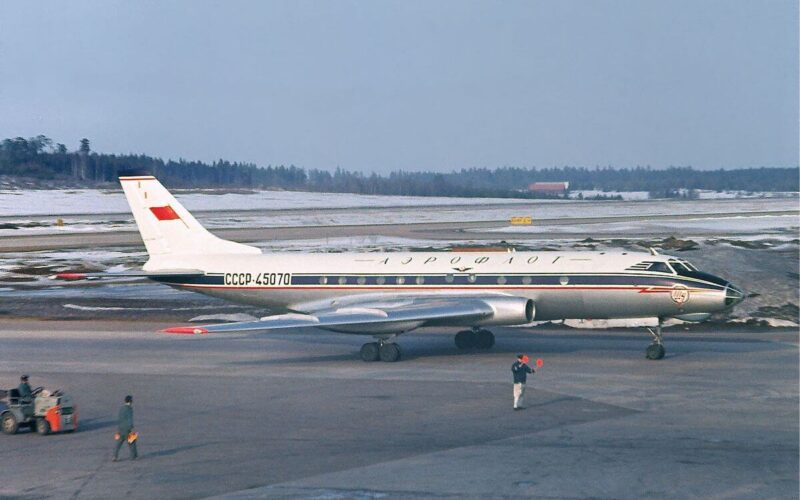Exactly 56 years ago, on August 21, 1963, an Aeroflot Tupolev Tu-124 was scheduled to fly from Tallinn Airport (TLL) in Estonia to Moscow-Vnukovo International Airport (VKO). The Tu-124, registered as CCCP-45021, carried 44 passengers and 7 crew members.
At 08:55 (UTC +3), the Tupolev Tu-124 took off and immediately encountered issues – technicians on the ground found a bolt that had detached from the aircraft. The flight crew noticed that the landing gear of the aircraft did not retract fully and was stuck at the half-way point. Subsequently, the crew requested permission to divert back to Tallinn (TLL), as they realized that the only option was to attempt a belly landing.
But due to the heavy fog, permission was not granted and the pilots decided to divert to St. Petersburg (back then still known as Leningrad). The flight crew decided to land on one of the unpaved runways at Pulkovo Airport (LED) not to further aggravate the risk of a fire by landing on concrete.
A mixture of miscalculations, human ingenuity and sheer luck followed the decision to divert to Pulkovo.
Ditching in the Neva
As emergency responders flocked to Pulkovo (LED), the Tupolev Tu-124 was circling above Leningrad to reduce its fuel load. Since the distance between Tallinn (TLL) and Vnukovo (VKO) was only 537 nm (865 km), the Tu-124 did not carry a lot of fuel.
While the aircraft was dumping fuel, the mechanics on board the plane thought of a brilliant idea – to punch a hole in the fuselage and try to fix the landing gear with a pole. As they almost fixed the wheel back into place, issues popped up in the cockpit – the aircraft was running out of fuel. The fuel gauges still showed that the fuel tanks have at least one ton of fuel.
Unfortunately for the crew, the gauges were broken. At 12:10 local time, about 13 miles (21 km) away from Leningrad’s airport, the left engine died as the fuel on board ran out. A minute or so after, the right engine gave up – the Tu-124, called the “Squeezed Tu-104”, was gliding above St. Petersburg. The captain, Viktor Mostovoy, decided the only option was to ditch the aircraft in the Neva River – doing the “Sully” 46 years before the Miracle on the Hudson.
As the Tu-124 glided and nearly missed the Alexander Nevsky Bridge, the pilot gently landed the aircraft on the Neva. However, as the plane touched down, the fuselage broke – water started coming in and the Tupolev started sinking. Luckily, a tug boat was nearby and arrived near the ditched jet. While the captain of the tug boat thought it was a test of a new hydroplane, the flight crew realized that the Tu-124 was quickly filling with water.
The PIC broke the cockpit window and tied the tug boat’s hawser to the control wheel of the aircraft. The tug boat carried the Tu-124 to a nearby pier, where everyone on board disembarked without any injuries. Local authorities recovered the aircraft two days later – according to AirHistory, the fuselage was later used as an instructional frame at KAT GA, an aviation college at Kirsanov, Russia.


